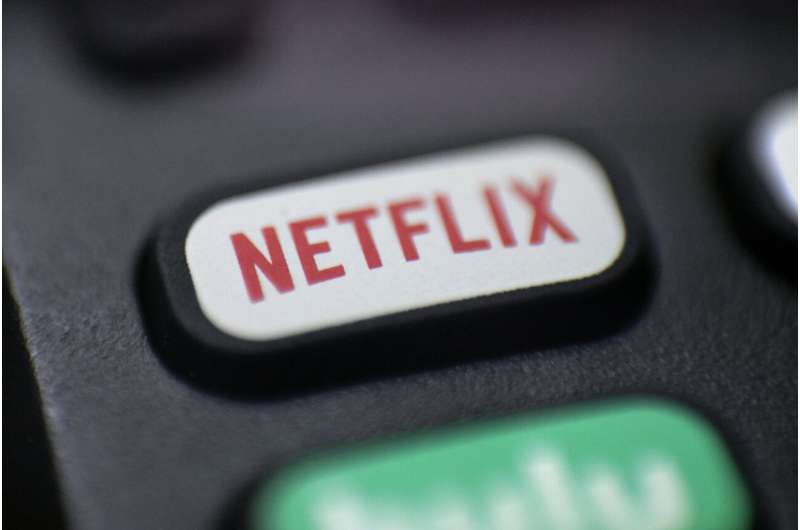Netflix's subscriber growth, stock zapped as pandemic eases

Netflix's pandemic-fueled subscriber growth is slowing far faster than anticipated as people who have been cooped at home are able to get out and do other things again.
The video-streaming service added 4 million more worldwide subscribers from January through March, its smallest gain during that three-month period in four years.
The performance reported Tuesday was about 2 million fewer subscribers than both management and analysts had predicted Netflix would add during the first quarter.
It marked a huge comedown from the same time last year when Netflix added nearly 16 million subscribers. That came just as governments around the world imposed lockdowns that created a huge captive audience for the leading video-streaming service.
Signaling that the trend is continuing, Netflix forecast an increase of just 1 million worldwide subscribers in the current April-June period, down from an increase of 10 million subscribers at the same time last year.
"It's just a little wobbly right now," Netflix co-CEO Reed Hastings said during a discussion of the company's results streamed Tuesday.
The poor showing to start the year rattled investors, causing the Los Gatos, California, company's stock to drop by more than 8% in extended trading, even though Netflix's revenue hit analyst targets and its profit exceeded estimates.
Netflix earned $1.71 billion, or $3.75 per share, more than doubling from a year ago. Revenue climbed 24% from the same time last year to $7.16 billion.
The inevitable slowdown in subscriber growth had been widely telegraphed by Netflix's management in repeated reminders that its gains were a pandemic-driven anomaly.
Now that a large swath of the U.S. population has been vaccinated, people are able to move around more freely and are finding other diversions besides watching TV series and movies on Netflix.
"It all boils down to COVID," Spencer Neumann, Netflix's chief financial officer, said Tuesday.
The big question is how big this year's decline will be from last year's full-year increase of 37 million worldwide subscribers—by far the biggest since Netflix expanded its DVD-by-rental service into video streaming 14 years ago.
Third Bridge analyst Scott Kessler speculated this year's sluggish start may pressure Netflix management to make changes in its pricing or fine tune its strategy to help boost its growth from one quarter to the next. "Or will the company continue to focus on the longer term?" Kessler wondered.
Netflix management sought to reassure investors in a letter that predicted subscriber growth would improve during the second half of the year as more TV series and movies that had to be delayed during the pandemic are finished and released.
But what happened during the first quarter signals Netflix may be headed toward a lackluster year. The last time Netflix started a year with a lower gain—5.3 million subscribers in the first quarter of 2017—the service ended up with an annual increase of 21.6 million subscribers.
Netflix management doesn't make annual growth projections, maintaining that it's difficult enough to predict how many subscribers its service will add from one quarter to the next.
Besides no longer benefiting from people being stuck at home most of the time, Netflix is also facing more competition than ever from a wide range of video streaming services from major companies such as Disney, Apple and HBO.
Netflix, though, remains far ahead of the rest of the pack, with nearly 208 million worldwide subscribers. It also benefits from an award-winning lineup of shows that include still-popular series such as "Stranger Things," "The Crown," and "Ozark," with more potential hits always brewing in a video factory that plans to spend $17 billion on programming this year alone.
Both Hastings and Neumann downplayed the impact of tougher competition in their comments Tuesday.
"There is this big runway of growth if we stay focused and keep getting better," Neumann said.
A large portion of Netflix's programming has been been financed by debt, but the company no longer expects to have to borrow to foot those bills. What's more, Netflix is now bringing in more cash than it is burning, something it has rarely done in the best.
After posting a positive cash flow of $1.9 billion last year, Netflix expects to break even this year.
© 2021 The Associated Press. All rights reserved. This material may not be published, broadcast, rewritten or redistributed without permission.





















